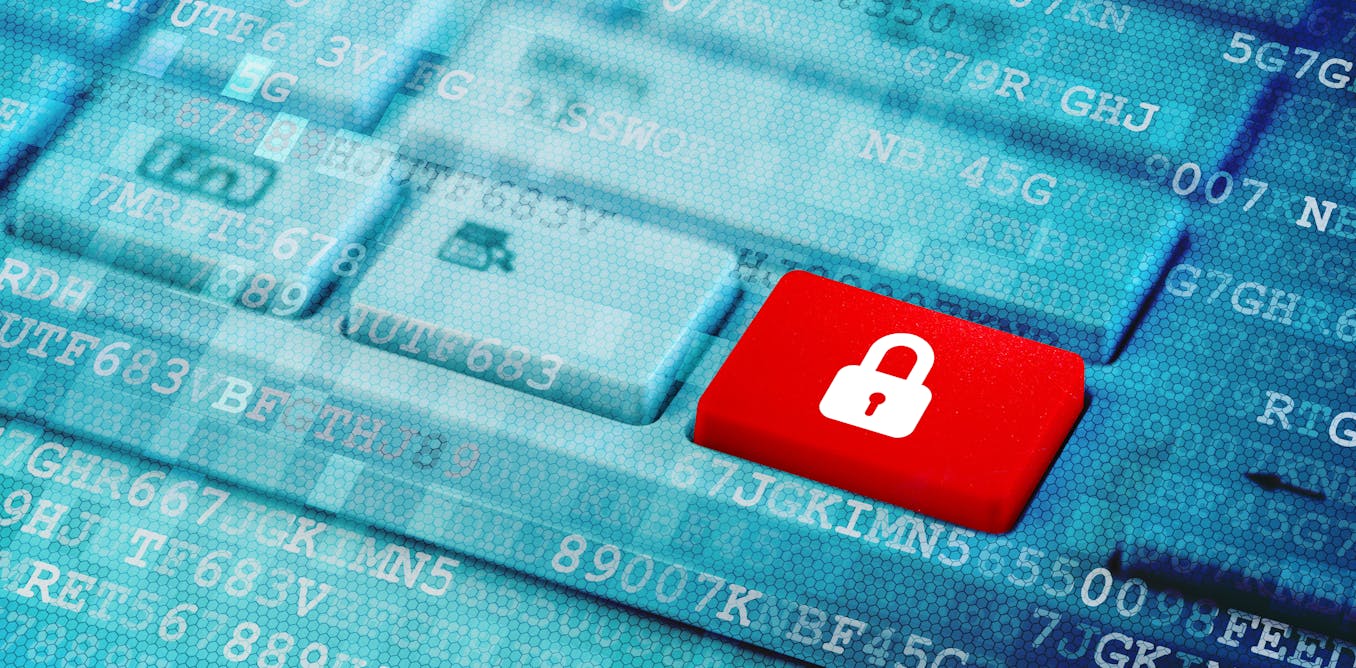Decentralized identity: blockchain-powered identity for the age of the internet

| Get all the vital market place news and specialist viewpoints in a single area with our each day publication. Obtain a comprehensive recap of the day’s top tales immediately to your inbox. Indication up below! |




(Kitco Information) – The assure of blockchain engineering expands far beyond crypto speculation and digital retailers of prosperity as there are a huge wide variety of programs in everyday everyday living, from identity verification to safe databases administration.


Final Thursday, the Polkadot ecosystem declared that Deloitte had develop into the hottest significant company associate to do the job with a task in the community, exclusively KILT Protocol, a challenge that is concentrated on delivering electronic identities.


According to the announcement from KILT, Deloitte Consulting AG has integrated with KILTs blockchain technology for issuing reusable electronic credentials to help KYC and KYB procedures. “These qualifications have multiple use scenarios which includes regulatory compliance for banking and Decentralized Finance (DeFi), age verification for e-commerce, personal logins and fundraising,” the announcement claimed.


At the new Consensus meeting held at the stop of April, Kitco Crypto sat down with Ingo Rübe, the founder of KILT Protocol and CEO of BOTLabs GmbH, the first developer of KILT, to discover much more about decentralized id and how enterprises can make the most of the technological know-how transferring ahead.


Rübe said that KILT is a layer-one particular blockchain and parachain within the Polkadot ecosystem that has a person solitary functionality: electronic id.


What is a decentralized identification?


Though several blockchains try to do everything, from intelligent contract help to internet hosting a wide variety of decentralized programs connected to DeFi and NFTs, KILT harnesses the collaborative power of the Polkadot Parachain to concentration on digital identity.


“What it can do is it can deliver DIDs, which are decentralized identifiers, and it can provide verifiable credentials,” Rübe explained. “Together, these things create decentralized identification.”


Decentralized identification is considerably comparable to what we have at present in the physical environment, Rübe said, due to the fact it is centered on identifiers like your face, fingerprint, or signature. “Those points are absolutely decentralized for the reason that they belong to you, they are not presented to you by the government or by a enterprise or business. It really is just yours, 100% yours.”


In the actual physical world, you acquire credentials from trustworthy entities, like a diploma from a university or a passport from a government, and these credentials refer to one particular of your identifiers, he stated. Your passport, for illustration, has a picture of your experience on it so the two items can be related.


These qualifications are issued by a trusted entity but controlled by the specific, indicating you come to a decision when to demonstrate them, the place to exhibit them, and to whom to exhibit them – devoid of the issuing entity being aware of who you have demonstrated them to – which would make them decentralized, Rübe described. “So, for the previous 500 years, we experienced rather a fantastic procedure for our identity – then came the internet.”


This led to the generation of “big data” and “big identity” players who command 100% of your id, he explained. “They handle your identifiers mainly because [the identifiers] are inside their database and they regulate your credentials because they are inside of their databases. They can change you off and they can do whatever they want with it, which is completely wrong and possibly quite perilous.”


This state of affairs led to companies like Microsoft, IBM, and Kilt selecting in 2017 that anything desires to be done, and in excess of the upcoming five a long time, they developed standards for facts distribution expert services and verifiable protections.


Kilt specializes in employing these requirements in a decentralized location. “You can use decentralized identity for every little thing wherever you would use your physical id,” Rübe reported. “You can use it for entry handle into buildings, logging into websites… there is fundamentally a ton of use conditions, even some that we just cannot consider yet.”


DID use circumstances


Just one case in point Rübe gave was a hospital that preferred to indication its study get the job done prior to it was printed and desired a timestamp on the blockchain to do it. “We crafted an software for that venture, and it labored,” he reported.


DIDs can also be hooked up to all method of objects or assets, such as freshly mined gold ore that is en route to processing and refinement, enabling it to be recorded and tracked on the blockchain.


Rübe went on to note that governments have also revealed fascination in and have an understanding of the strategy of verifiable credentials, but they “are not extremely thrilled about the DID mainly because they feel that they own the identification nowadays, so they really should personal the identification in the foreseeable future.”


“But this is wrong since they really don’t have the identifiers. I personal my identifiers and not the govt,” Rübe reported. “The authorities nowadays just provides me a verifiable credential. So also in the electronic environment, the authorities need to be an entity that is dependable and issues verifiable credentials.”


He warned that a future the place governments management your identification is one particular in which they can switch off your identity if you do a little something that they disagree with. “When digital id receives far more and much more use situations, this kind of as in health care and banking, and you do one thing that displeases the governing administration, they could, with just a person click, swap off your identification. You are fundamentally digitally lifeless,” he claimed. “ I you should not want the authorities possessing this potential.”


KILT specializes in earning the infrastructure upon which corporations can create their possess id programs. One particular possible software is the generation of “social KYC,” which verifies that you are the 1 in handle of certain social media accounts, like Twitter, GitHub, Discord, and many others. The KYC system would obstacle you to reveal that you control each account, and at the time you go the problem and have verified you definitely regulate the account, you would obtain a credential.


“This credential is then set into your identification wallet,” Rübe discussed. “You regulate it, and can use it to validate your identity in the upcoming. And we can have 10 of all those qualifications. This tends to make it significantly extra sure that you are actually who you say you are.”


He then touched on the forthcoming announcement from Deloitte, saying that in the next 7 days, there will be an internationally acknowledged KYC provider that will unveil an id resolution based mostly on KILT. “You can have your identification confirmed with this KYC provider, and they will give you one more credential that you can use, for illustration, to take part in an preliminary coin offering (ICO) or open a bank account.”






Danger of DID theft


On the subject of id theft, Rübe stated the possibility of an individual accessing and making use of your decentralized id is minimal simply because, identical to the bodily entire world, identifiers this kind of as your picture will be connected to enable for good verification when a DID is utilised. “Signing with the DID is like having your experience and placing it alongside your signature,” he reported. “A thief would have to have access to the DID and to the confirmed credentials at the exact same time.”


This is where by blockchain technologies plays a vital purpose in the system. “The validity of any credential is saved on the blockchain and can be modified by the issuer,” he mentioned. “That suggests that if I have a verified credential and I lose my DID since it received compromised, and I reduce my verified credential at the same time, and an individual will get obtain to each of them, I can nonetheless contact the issuer and ask them to invalidate my credential.”


This capacity was observed in the KILT-Deloitte partnership announcement. “Credentials are digitally signed by Deloitte,” it stated. “Deloitte can revoke credentials making use of blockchain engineering if disorders of the shopper have improved just after the credential was issued.”


Why KILT chose to make in the Polkadot ecosystem


When asked why KILT picked the Polkadot ecosystem to establish its protocol, Rübe stated a important factor was the variability in transaction expenses on Ethereum “which the industry just can’t cope with.” Attaching a DID to some thing that has a manufacturing expense of $2, but obtaining to expend $1 a single day and $20 yet another working day to full the very same method is unfeasible, he stated.


“The only way to have stable prices is to run your have blockchain,” he claimed. “So the final decision was made to start a level-a single blockchain.” Becoming a section of the Polkadot ecosystem usually means that KILT can leverage other parachains to do things like host sensible contracts and DeFi platforms, leaving KILT to concentration specifically on decentralized identity.


“The elementary plan of Polkadot is one particular of cooperation, collaboration, and deficiency of competition in other networks,” he mentioned. “We are not competing for computing means. We all have our own laptop or computer, and this enables us to collaborate and make the ecosystem much better. We just focus on 1 issue – identity. And this functions alongside one another with all the other Polkadot parachains. Compelled collaboration is much far better than levels of competition.”






Disclaimer: The views expressed in this write-up are people of the creator and may perhaps not reflect individuals of Kitco Metals Inc. The creator has designed just about every exertion to make certain precision of information and facts offered nonetheless, neither Kitco Metals Inc. nor the author can ensure this kind of precision. This post is strictly for informational needs only. It is not a solicitation to make any exchange in commodities, securities or other money instruments. Kitco Metals Inc. and the author of this short article do not acknowledge culpability for losses and/ or damages arising from the use of this publication.

:format(webp)/https://www.thestar.com/content/dam/thestar/business/technology/2023/03/28/this-viral-photo-of-the-pope-in-a-puffer-jacket-fooled-the-internet-how-can-we-spot-ai-deepfakes/balenciaga_pope.jpg)





